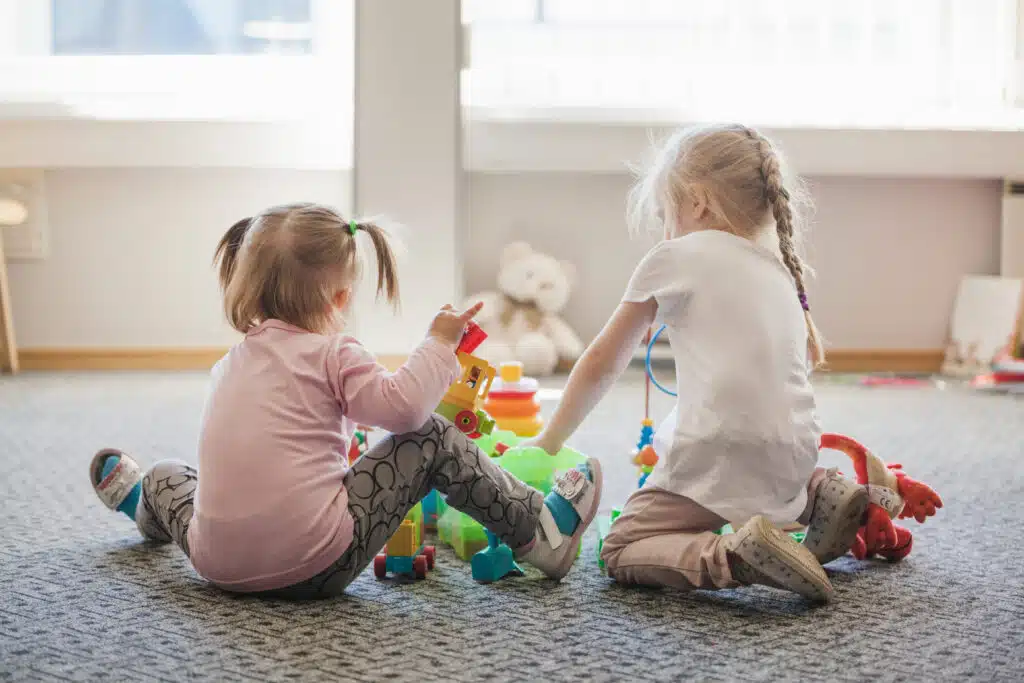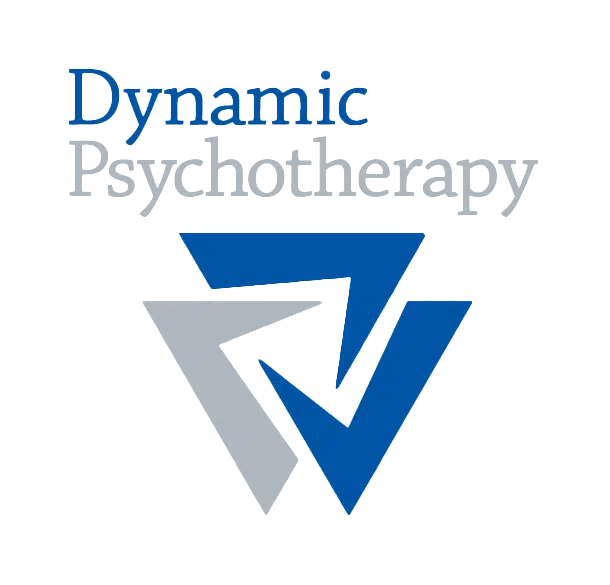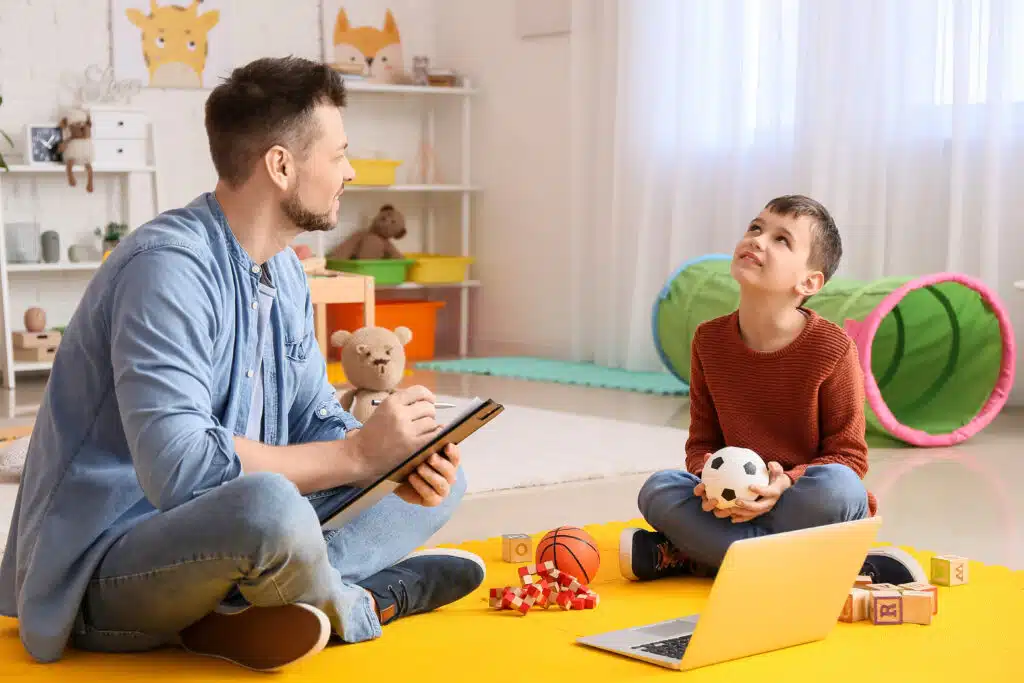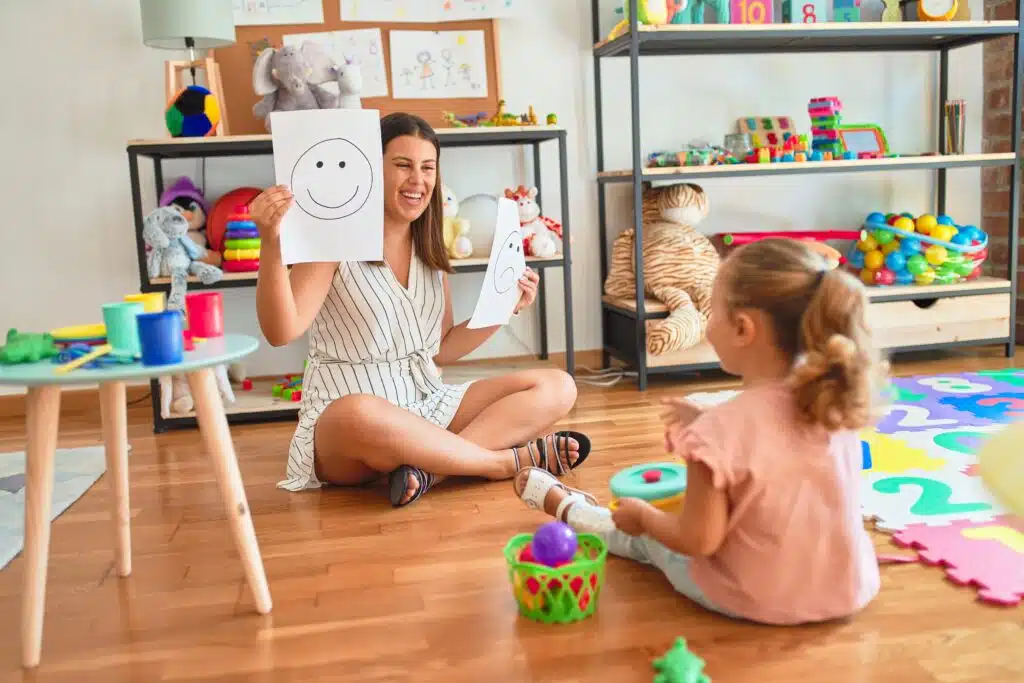At Dynamic Psychotherapy we offer therapy for children who are suffering from a range of emotional problems

Children’s therapy can assist with addressing various concerns such as
- Anxiety related problems, (obsessive compulsive disorder, phobias, separation anxiety, social anxiety, panic)
- Autism spectrum disorder (ASD)
- Attention deficit hyperactivity disorder (ADHD)
- Oppositional behaviours
- Depression
- Trauma
- Adjustment concerns
- School refusal
- Interpersonal and communication skills
- Aggression
- Eating and toileting concerns
- Grief and loss
- Sleep difficulties
Introduction to Child Psychology at Dynamic Psychotherapy
Child psychology is a specialized field that focuses on the mental, emotional, and behavioral development of children from infancy through adolescence. Understanding the complexities of a child’s mind is crucial for their overall well-being and development.
At Dynamic Psychotherapy, we are committed to providing expert child psychology services that cater to the unique needs of each child and family.
Our team of qualified child psychologists and therapists work collaboratively to offer evidence-based treatments designed to help children thrive.
Why is Child Psychology Important?
The early years of a child’s life are formative and lay the groundwork for their future. Addressing any psychological concerns during this critical period can have a lasting impact, setting the stage for a healthier, happier adulthood. Whether it’s behavioral issues, emotional challenges, or developmental delays, timely intervention by a specialized child psychologist can make all the difference.
Dynamic Psychotherapy: Child Psychology Services
Choosing the right healthcare provider is a significant decision, especially when it involves the mental health of your child. At Dynamic Psychotherapy, we pride ourselves on being a trusted resource for families seeking high-quality psychological care. Our approach is holistic, compassionate, and tailored to meet the individual needs of each child.
Why Choose a Specialised Child Psychologist?
When it comes to the mental and emotional well-being of your child, choosing the right healthcare provider is crucial. A specialized child psychologist brings a unique set of skills and expertise to the table, making them exceptionally qualified to address the complex psychological needs of children. Here’s why opting for a specialized child psychologist is a wise decision:
Expertise in Child Development
Child psychologists undergo rigorous training that focuses specifically on the developmental stages and psychological needs of children. This specialized knowledge enables them to accurately diagnose and treat a wide range of emotional, behavioural, and developmental issues that general psychologists may not be fully equipped to handle.
Tailored Treatment Plans
Children are not simply “small adults.” Their psychological needs are distinct, and a one-size-fits-all approach often falls short. Specialized child psychologists are skilled in crafting treatment plans that are tailored to the unique needs of each child, taking into account their age, developmental stage, and specific challenges.
Family-Centric Approach
Child psychologists often work closely with families to ensure that the child’s environment is conducive to their mental and emotional well-being. This family-centric approach involves educating parents and caregivers on how to best support their child, making it a collaborative effort that extends beyond the therapy room.
Evidence-Based Methods
The field of child psychology is continually evolving, with new research and methodologies emerging regularly. A specialized child psychologist stays updated on the latest evidence-based treatments and interventions, ensuring that your child receives the most effective and up-to-date care.
Emotional Safety
Children often find it challenging to articulate their feelings and concerns. A specialized child psychologist is trained in creating a safe, non-judgmental space where children feel comfortable expressing themselves. This emotional safety is crucial for effective therapy and long-term well-being.
Choosing a specialized child psychologist ensures that your child receives the highest level of care, tailored to their unique needs. At Dynamic Psychotherapy, our team of qualified child psychologists is committed to providing evidence-based, compassionate care that makes a real difference in the lives of children and their families.
Signs Your Child May Benefit from Therapy
Recognizing the need for professional psychological intervention in your child’s life can be a challenging but crucial step. Children often manifest their emotional or behavioural struggles differently than adults, making it essential for parents and caregivers to be vigilant about the signs that may indicate a need for therapy. Here are some common signs that suggest your child may benefit from seeing a child therapist:
Behavioural Changes
Sudden or drastic changes in behaviour, such as increased aggression, withdrawal from social activities, or a decline in academic performance, can be red flags. These changes often signal underlying emotional or psychological issues that require professional attention.
Emotional Outbursts
Frequent emotional outbursts, such as tantrums, excessive crying, or heightened irritability, can indicate emotional regulation difficulties. A child therapist can help identify the root cause and provide strategies for better emotional management.
Sleep Issues
Trouble falling asleep, frequent nightmares, or other sleep disturbances can be signs of stress or anxiety. Sleep is crucial for a child’s development, and persistent sleep issues should not be ignored.
Eating Habits
Significant changes in eating habits, whether it’s a loss of appetite or overeating, can be symptomatic of emotional struggles. Eating disorders are also increasingly common in children and adolescents and require immediate intervention.
Social Withdrawal
If your child suddenly starts avoiding friends, loses interest in social activities, or becomes increasingly isolated, it may be a sign of social anxiety or depression. Early intervention can help address these issues effectively.
Academic Struggles
A sudden decline in grades, loss of interest in school, or frequent complaints about school can be indicators of learning difficulties or emotional challenges that are affecting academic performance.
Excessive Fears or Phobias
Children often have fears, but if these fears become excessive and start affecting daily life, it may be time to consult a child therapist for a professional evaluation.
Family Changes
Major life changes, such as divorce, moving to a new place, or the death of a loved one, can have a significant emotional impact on a child. Therapy can provide a supportive environment to help them cope with these changes.
If you notice any of these signs in your child, it may be beneficial to consult with a qualified child therapist. At Dynamic Psychotherapy, our team of experts specializes in child psychology and offers a range of evidence-based treatments designed to help your child navigate emotional and behavioural challenges effectively.
Finding a Children’s Psychologist Near You in Melbourne
Selecting the right child psychologist is a crucial decision that can have a lasting impact on your child’s well-being. If you’re based in Melbourne, you’re in luck—Dynamic Psychotherapy offers specialized child psychology services right in your community. Here’s how to find a qualified child psychologist near you:
Start with Recommendations
Word-of-mouth recommendations from trusted friends, family, or healthcare providers can be a reliable way to find a qualified child psychologist. You can also consult your child’s school counsellor for recommendations tailored to your child’s specific needs.
Online Search
Utilize search engines to look for child psychologists in Melbourne. Use keywords like “child psychologist near me” or “Melbourne child psychologist” to narrow down your options. Websites often contain valuable information, including credentials, services offered, and patient reviews.
Consult Local Directories
Melbourne has various healthcare directories that list qualified child psychologists. These directories often provide detailed profiles, including areas of specialization and contact information, making it easier for you to make an informed decision.
Check Credentials
Always verify the credentials of any child psychologist you’re considering. Look for professionals who are registered with reputable organizations and have the necessary qualifications and experience in child psychology.
Schedule a Consultation
Once you’ve shortlisted a few options, schedule consultations to meet the psychologists in person. This will give you an opportunity to discuss your concerns, ask questions, and gauge whether the psychologist is a good fit for your child.
Consider Convenience
Given that therapy often requires regular sessions, consider the location and availability of the child psychologist. Dynamic Psychotherapy is conveniently located in Melbourne, making it easier for local families to access our services.
Insurance and Payment Options
Before finalizing your choice, inquire about insurance coverage and payment options. At Dynamic Psychotherapy, we offer a range of payment options to ensure that our services are accessible to everyone.
Finding a qualified child psychologist in Melbourne doesn’t have to be a daunting task. By following these steps and considering local options like Dynamic Psychotherapy, you can find the right professional to support your child’s mental and emotional well-being.
Services We Offer in Child Psychology
Parent-Child Interaction Therapy (PCIT)
Parent-Child Interaction Therapy (PCIT) is an evidence-based approach designed to strengthen the parent-child bond. Through live coaching sessions, parents acquire practical skills in communication and discipline, which in turn positively impact their child’s emotional and behavioral well-being.
Ideal for children aged 2–7, PCIT is particularly effective for addressing disruptive behaviors, low frustration tolerance, defiance, social challenges, and difficulties in emotion regulation. The therapy is also beneficial for managing symptoms related to anxiety, autism, and attention deficit hyperactivity disorder (ADHD).
The treatment is divided into two phases and employs a family-centric model, making it suitable for various caregivers, including adoptive and birth parents, as well as foster and kin caregivers.
- First Phase: We focus on building warmth and connection in the relationship between the child and their caregiver.
- Second Phase: exploration of and practice in management of the most challenging behaviours with calmness and consistency to help your child except your limits, rules and directions.
Parent Coaching
While psychologists are trained in child development, mental health conditions, and effective interventions, the most impactful therapy often involves the active participation of parents, caregivers, and key family members.
Parental guidance serves as a supportive mechanism in this context. Therapists collaborate with primary caregivers to identify the family’s strengths, values, and objectives. This helps foster introspection about existing dynamics and facilitates the necessary changes to achieve therapeutic goals.
Our psychologists assist parents in deepening their understanding of various aspects of child development. These include, but are not limited to, cognitive, social, and emotional growth, as well as speech and language development. This enriched understanding enables parents to merge new insights with their existing knowledge about their child, thereby making more informed decisions about home-based interventions and fostering a positive, nurturing relationship.
Key areas therapists may work with parents on to support therapeutic goals for their child and family include:
- Increasing positive experiences
- Enhancing child-parent bonding through child-led play
- Increasing emotion regulation capacities
- Managing and providing support for emotional and behavioural outbursts
- Supporting and increasing mastery of parenting skills
- Enhancing interventions consistency between caregivers
Intensive Short-Term Dynamic Psychotherapy (ISTDP)
ISTDP is an accelerated form of psychotherapy that aims to get to the root of emotional problems quickly. It’s particularly effective for children who may be dealing with severe anxiety, depression, or trauma.
Child-Centred Play Therapy
This non-directive approach allows children to explore their feelings and thoughts through play. The therapist provides a safe, confidential setting where the child can express themselves freely, helping to resolve emotional and behavioural issues.
Cognitive Behavioural Therapy (CBT)
CBT is a problem-focused, practical approach that helps children understand the link between their thoughts, feelings, and behaviours. It’s commonly used to treat anxiety, depression, and other mood disorders.
Dialectical Behaviour Therapy (DBT)
DBT combines cognitive-behavioural techniques with mindfulness strategies. It’s particularly effective for children and adolescents who struggle with emotional regulation or have a history of self-harm.
Applied Behavioural Analysis (ABA)
ABA is often used for children with developmental disorders like autism. It focuses on improving specific behaviours, such as social skills, communication, and academics, through positive reinforcement.
Play Therapy
Play therapy offers children a natural way to communicate and explore their feelings. It’s often used for younger children who may not have the verbal skills to express themselves effectively.
Group Therapy
Group therapy provides a supportive environment where children can interact with peers facing similar challenges. It’s an effective way to build social skills and gain insights into their own behaviour and feelings.
Family Therapy
Family therapy involves treating the family as a unit and is often used in conjunction with other forms of therapy. It helps family members understand each other better and improves communication and problem-solving within the family.
Each of our services is grounded in evidence-based practices and tailored to meet the unique needs of each child and family. Our team of qualified child psychologists in Melbourne is committed to providing compassionate, effective care that makes a meaningful difference in the lives of our clients.
Assessments for Children and Adolescents
What may be contributing to a child’s difficulties may not always be clear on the outset of therapy, therefore a psychologist may suggest assessment (where assessments have not been requested) following initial sessions. However, caregivers and families may already have been made aware of the relevant assessments for their child.
Psychologists may use cognitive, achievement, social, as well as condition specific assessments to determine the most appropriate forms of treatment for the presenting concern. Multiple information sources may be drawn on, such as reports from teachers, caregivers, significant figures in the child/adolescents life, other treating health professionals, as well as observations in school, kindergarten, home or clinic settings.
Psychologists who work with children and families at Dynamic Psychotherapy are able to offer cognitive and diagnostic assessment, in addition to, or in isolation of therapy. The processes of undertaking psychological assessment can include:
- Initial Consultation: A One-Hour Meeting with the Child and/or Parent
- Assessment Phase: Utilization of Specialized Instruments and Metrics Across 2-3 Sessions
- Concluding Session: Review of Assessment Results, Future Directions, and Advisements, Accompanied by a Comprehensive Report Provided to You
Available Assessments
- Autism Spectrum Disorder (ASD) Assessment for Children and Adolescents
- Attention Deficit Hyperactivity Disorder (ADHD) Assessment for Children and Adolescents
- Personality Assessments for Adolescents
- Cognitive Assessments for Children and Adolescents
- Developmental and Adaptive Functions Assessment
- Behavioural and Emotional Assessments
- Academic Skills Profiles: Learning Difficulties, Dyslexia, Dysgraphia/Dyscalculia
Meet Our Team of Child Psychologists
Choosing the right child psychologist is a critical decision for any family. At Dynamic Psychotherapy, we’re proud to have a team of highly qualified and experienced child psychologists who are dedicated to providing exceptional care.
Here’s a brief introduction to our team members, each of whom brings a unique set of skills and specializations to our practice:
Click on a therapist to view more

Moulya Ramesh Kumar
Having worked in a culturally diverse setting across countries, Moulya’s interventions are tailored to suit the needs of the individual and is informed by ISTDP, CBT, ACT and DBT approaches. She strongly believes that an empathetic stance, genuineness, and collaborative approach can have a profound effect in tapping into their deepest potential and transforming themselves.
Specialisations:
Assessments for: ADHD, ASD IQ and Learning Disorders. Emotional & Behavioural Disorders in children. Adolescent/Adult Personality & Mental Health Assessments
Approach:
ISTDP, DBT, CBT, ACT & Mindfulness
Qualifications:
MSc, MPhil (Clin Psych), MAPS, AMACPA

Sacha Kennedy
Sacha works with children, adolescents, and adults from a psychodynamic perspective. She also works from an attachment framework with parents/caregivers and children to promote the development of warm and secure relationships and is in training in ISTDP
Specialisations:
Academic Skills Profiles: Learning Difficulties, Dyslexia, Dysgraphia/ Dyscalculia. School Problems, Refusal and Bullying
Approach:
Parent-Child Interaction Therapy (PCIT), Parent Coaching, ACT, CBT & Psychodynamic interventions.
Qualifications:
School Teacher & Provisional Psychologist

Michelle Mennie
Michelle supports adults, adolescents and children who have anxiety, depression, stress, trauma, interpersonal issues, and physical health difficulties, such as pain, processing health diagnoses, and recovering from physical injuries. She has experience working in public hospitals, and practices in a trauma-informed and LGBTQIA+ safe manner.
Specialisations:
Interpersonal Issues, Trauma, Physical Health Difficulties & LGBTQIA+ Informed Approaches
Approach:
ISTDP, CBT, ACT, Behavioural Therapies & Schema Therapy
Qualifications:
M Psych (Clinical), BPsych(Hons)

Susanna Sibillin
Susanna is a registered psychologist who works with adults, adolescents, children, and couples. She has experience in working with clients with a wide range of challenges, including interpersonal difficulties, trauma (including childhood trauma and family violence), addiction, eating disorders, anxiety, and depression (including peri-natal depression and anxiety).
Specialisations:
Interpersonal Difficulties, Trauma (including childhood trauma and family violence), Addiction & Eating Disorders
Approach:
EMDR Therapy, Schema Therapy, DBT, CBT & ACT
Qualifications:
MPsych(Clin), MSW, PGDip
Our team of children’s psychologists in Melbourne are not only highly skilled but also deeply committed to the well-being of each child and family they work with. They employ a range of evidence-based therapies and treatments, ensuring that the care your child receives is both effective and tailored to their specific needs.
Whether your child requires Cognitive Behavioral Therapy, Parent-Child Interaction Therapy, or any of our other specialized services, you can trust our team to provide compassionate, expert care. We invite you to learn more about each psychologist’s background and approach to better understand how they can assist your family.
What to Expect in a Child Therapy Session
Embarking on the journey of child therapy can be both a hopeful and anxious time for families. Understanding what to expect in a therapy session can help ease some of that anxiety and better prepare you and your child for the experience. At Dynamic Psychotherapy, we strive to create a welcoming and safe environment for children and their families. Here’s what you can generally expect in a child therapy session with us:
Initial Assessment
The first session is usually an assessment where the therapist gathers information about your child’s emotional, behavioural, and developmental history. This is a crucial step in formulating a treatment plan tailored to your child’s specific needs.
Building Rapport
The therapist will spend time building a trusting relationship with your child. This rapport is essential for effective therapy, as it makes the child more comfortable in sharing their thoughts and feelings.
Therapeutic Techniques
Depending on the therapist’s approach and the child’s needs, various therapeutic techniques may be employed. These can range from Cognitive Behavioral Therapy to Play Therapy. Our therapists are skilled in a variety of evidence-based methods to ensure the most effective treatment.
Parental Involvement
Parents are often involved in the therapy process, especially in treatments like Parent-Child Interaction Therapy. The therapist may provide feedback and coaching to parents on how to better communicate and interact with their child.
Emotional Exploration
The therapist will pay close attention to your child’s play and verbal expressions, helping them explore the emotions that accompany them. This exploration is a key component of therapies like Child-Centred Play Therapy.
Progress Monitoring
Regular assessments will be conducted to monitor your child’s progress. These assessments help in adjusting the treatment plan as needed and ensure that the therapy is on the right track.
Confidentiality
Confidentiality is a cornerstone of our practice. While parents are kept informed of their child’s progress, the details of what a child shares in therapy are kept confidential to maintain a trusting environment.
Duration and Frequency
The length and frequency of therapy sessions can vary depending on the child’s needs and the type of therapy being administered. Some therapies, like Intensive Short-Term Dynamic Psychotherapy, may be more accelerated, while others may require a longer-term commitment.
Whether your child is undergoing Cognitive Behavioural Therapy, Play Therapy, or any of our other specialized services, you can expect a compassionate and professional approach from our team of qualified child psychologists in Melbourne. We are committed to providing effective, individualized care that addresses the unique needs of each child and family.
Success Stories and Testimonials
The impact of effective child psychology services is best illustrated through the stories of those who have experienced transformative changes. While the testimonials and success stories mentioned here are not directly from our clients at Dynamic Psychotherapy, they serve as compelling evidence of how specialized child psychology services can make a significant difference in the lives of children and their families.
Parent-Child Interaction Therapy (PCIT)
Parents who have undergone PCIT often report remarkable improvements in their child’s behaviour and their own parenting skills. One parent shared that PCIT not only helped their child become more compliant but also significantly reduced parental stress, echoing the sentiments of many who have benefited from this evidence-based treatment.
Cognitive Behavioural Therapy (CBT)
CBT has been lauded for its effectiveness in treating a variety of conditions, from anxiety to depression. One young patient, after undergoing CBT, was able to overcome severe social anxiety that had previously hindered academic performance and social interactions.
Intensive Short-Term Dynamic Psychotherapy (ISTDP)
ISTDP has shown promising results in treating severe emotional disorders quickly. A case study highlighted a teenager who, after undergoing ISTDP, showed significant reductions in symptoms of depression and anxiety, leading to improved academic performance and social relationships.
Dialectical Behaviour Therapy (DBT)
DBT has been particularly effective for children and adolescents struggling with emotional regulation. One testimonial revealed how DBT helped a child gain better control over their emotions, leading to improved relationships with family and friends.
Play Therapy
Play therapy has been a game-changer for many families, helping children express their emotions more effectively. Parents have reported seeing their children become more confident and less anxious after attending play therapy sessions.
Group Therapy
Group therapy has been effective in helping children build social skills and gain insights into their behaviour. One parent noted that their child, who had been struggling with social anxiety, became more outgoing and confident after participating in group therapy sessions.
Family Therapy
Family therapy has been instrumental in improving the dynamics within families. One family shared that the therapy helped them understand each other better and significantly improved their communication and problem-solving skills.
Our team of qualified child psychologists in Melbourne is committed to providing the same level of transformative care. We employ a range of evidence-based therapies and treatments to ensure that your child receives effective, individualized care tailored to their specific needs.
Getting Started with Our Services
Taking the first step towards improving your child’s mental and emotional well-being is a significant decision, and we’re here to make the process as smooth as possible. At Dynamic Psychotherapy, we offer a straightforward and convenient way to schedule your initial appointment with our team of qualified child psychologists in Melbourne. Here’s how you can get started:
Online Appointment Request
For a quick and easy way to schedule your first session, simply fill out our online appointment request form. The form is available on our website and can be accessed through the following link: Appointment Request Form.
Call Us
If you prefer to speak directly with our team, you can reach us by phone. Our contact number is 0424 220 314. Our friendly staff will assist you in setting up an appointment and answer any initial questions you may have.
Email Us
For those who find email more convenient, you can also schedule an appointment by sending us an email at [email protected]. We aim to respond to all email inquiries promptly to get your appointment scheduled as soon as possible.
What Happens Next?
Once your appointment is scheduled, you’ll receive a confirmation along with any initial paperwork that needs to be completed before the first session. During your initial appointment, our therapists will conduct an assessment to understand your child’s specific needs and discuss the most appropriate treatment options.
We understand that each child and family is unique, which is why we offer a range of specialized services, from Cognitive Behavioural Therapy to Parent-Child Interaction Therapy, tailored to meet your specific needs.
Taking the first step is often the hardest, but rest assured, our team is committed to providing compassionate, effective care that makes a meaningful difference in the lives of our clients. We look forward to partnering with you on this important journey.
Additional Resources
While we strive to provide comprehensive and effective services at Dynamic Psychotherapy, we understand that additional resources can be invaluable for ongoing support and education. Below are some free resources that can complement the work you’re doing with us:
Kids Helpline
Kids Helpline offers confidential online and phone counselling for children and teenagers. It’s a valuable resource for immediate emotional support.
Institute of Child Psychology Resources
The Institute of Child Psychology provides a variety of articles, videos, and webinars aimed at helping parents and caregivers understand child psychology better.
Psychology Tools
Psychology Tools offers free worksheets, assessments, and self-help guides that can be useful for both parents and children in understanding and managing emotional and behavioural issues.
UCLA Guided Meditations
UCLA Health provides free guided meditations that can be a helpful tool for relaxation and stress management for both parents and children.
Beyond Blue
Beyond Blue offers a range of mental health resources, including articles, forums, and immediate support for individuals facing depression, anxiety, and other mental health conditions.
Disclaimer: We Are Not Responsible For Websites We Link To
Please note that while we recommend these resources for additional support, we have no control over the contents of these websites or resources. Dynamic Psychotherapy is not responsible for the content, accuracy, or any other aspect of these external sites.
These resources can serve as a supplement to the specialized services we offer, providing additional support and information for you and your family. We encourage you to explore these resources as you continue on your journey toward improved mental and emotional well-being.
Frequently Asked Questions (FAQs)
How Do I Schedule an Initial Appointment with Dynamic Psychotherapy?
You can schedule your first appointment by filling out our online appointment request form, calling us at 0424 220 314, or emailing us at [email protected]. For more details, please refer to the “Getting Started with Our Services” section.
2. What Types of Therapies Do You Offer for Children?
We offer a wide range of specialized services for children, including Parent-Child Interaction Therapy, Cognitive Behavioral Therapy, Intensive Short-Term Dynamic Psychotherapy, and more. For a complete list and descriptions, see the “Services We Offer in Child Psychology” section.
3. What Can I Expect in the First Therapy Session?
The first session is generally an assessment where the therapist gathers information about your child’s emotional, behavioral, and developmental history. This helps in formulating a tailored treatment plan. More details can be found in the “What to Expect in a Child Therapy Session” section.
4. Do You Have Any Success Stories or Testimonials?
While we maintain client confidentiality and do not share specific testimonials, we have included a section on general success stories related to the types of therapies we offer. These stories serve as evidence of the effectiveness of specialized child psychology services.
5. Are There Any Additional Resources I Can Refer To?
Yes, we’ve listed several free resources that can provide additional support and information. These include Kids Helpline, Institute of Child Psychology, and more. However, please note that we are not responsible for the content on these external websites. For a full list, see the “Additional Resources” section.
Request an Appointment
If you would like further information about our appointments for children, or to book an appointment, please contact our reception on 0424 220 314 or email [email protected] or you can use our appointment request form by clicking the button below.



